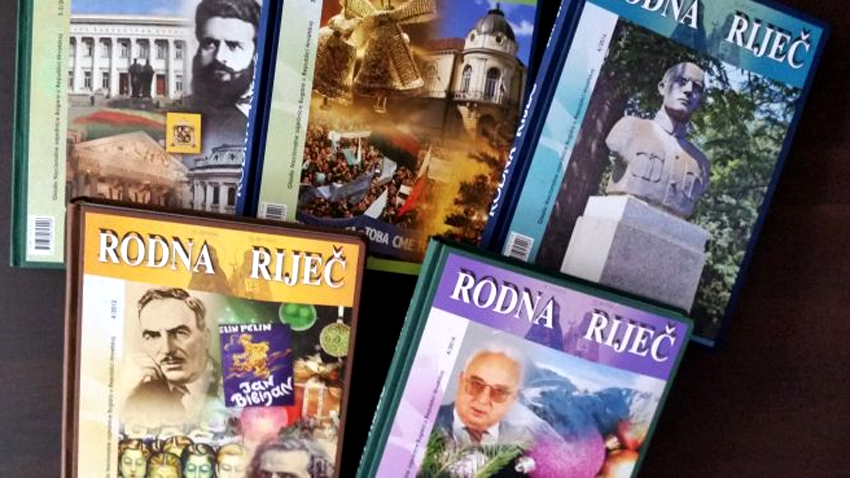As a popular Bulgarian joke goes, you are bound to bump into a fellow Bulgarian wherever you may go around the globe and it applies with full force also when it comes to Croatia. The country, which is the newest (until now) 28th member of the European Union (since July 1, 2013), is close to us not only because of our common European family and its attractive tourism, but also as a place with a respected and officially recognized Bulgarian minority.
In 1998, the National Organization of Bulgarians in Croatia was established in Zagreb. Four years later (in 2002), they were granted the status of a national minority, and since 2003 a special subsidy has started to be allocated from the Croatian budget. For the needs of the community, the Zagreb City Council has also provided a venue at 13 Knyaz Mislav Str, where the Bulgarian community can carry out various initiatives aimed at preserving the Bulgarian identity, language and culture. There is also a bilingual journal entitled Rodna rech (Native Speech) published in Zagreb and financially supported by the Croatian Ministry of Culture. Its editor-in-chief is Bulgarian writer and journalist Diana Glasnova. Born in Sofia in 1954, Diana has worked as a journalist at the Bulgarian Telegraph Agency and in the Democracy newspaper and in 1996 moved to Zagreb, living there ever since:
"The Bulgarian community in Croatia goes back a long way," Diana says in an interview for Radio Bulgaria. "There are young people who come to Croatia to work, but they do not stay here for long. Often these are representatives of institutions such as the World Bank or the European Parliament, and they remain in Zagreb until their term in office ends. The main diaspora here is composed of heirs to Bulgarian gardeners and the families of musicians who, in the 1970s, after participating in the popular Summer Music Evenings in Dubrovnik, decided not to return to Bulgaria. Some of them went into fake marriages, others signed long-term contracts with the theatre or other Croatian cultural institutes. There are few people who have remained from the immigrants and young people who come here nowadays have little interest in the community. You know, young people today work 12-16 hours a day, depending on the sector, and after work they are tired - you can hardly get them to visit a Bulgarian exhibition or something. That is why we publish the Rodna Rech journal.”

The settlement of Bulgarians on the territory of Croatia took place in several stages and in different historical periods. Evidence for Bulgarian settlements dates back to the Middle Ages, and after the Chiprovtsi Uprising (1688) Bulgarian Catholics settled in the Slavonia region (present-day Croatia). The Pejačević family received an estate in the region of the town of Osijek, and the champion for Bulgarian freedom Georgi Pejačević – a baron’s title. In the middle of the 19th century, many Bulgarians studied at the University of Zagreb with a scholarship awarded by a great friend of Bulgaria, Bishop Joseph Strossmayer. The second big Bulgarian wave to Zagreb dates from the beginning of the 20th century. These were gardeners who became famous on the Zagreb marketplace with vegetables unknown until then. Bulgarian farmers impressed the Zagreb residents so much that for years they would call "Bulgarian" anyone who was involved in vegetable production.
In recent years, the number of Bulgarians in Croatia has increased. Young people from Bulgaria go there to study or work. There is nothing accidental also in the purpose of the Bulgarian bilingual magazine Rodna Rech published in Zagreb, says its editor-in-chief Diana Glasnova:
"We want to explain to the Croats who we are and what Bulgaria is. Otherwise how should we expect respect for a minority if it is little-known? That is why we write in both Bulgarian and Croatian, which makes us unique. No other minority in Croatia has bilingual editions because of the resources they need for translation. But we felt that it should be done in this way. Now, as a matter of fact, our journal is read by the Croatian president and cabinet ministers. In addition, for the fourth year now, the Bulgarian magazine has been purchased by the Library of Congress in Washington. It is fully funded by the Croatian state. And this is the case for all national minorities in Croatia, for which we are grateful."
English version Rossitsa Petcova
The survival of millions of people around the world, living in conditions of war, hunger, disease and immense despair, is at stake every day. We often approach immigrants from such countries with hostility rather than understanding. What they have..
Modernizing critical thinking skills, fact-checking skills and media literacy are essential for society, especially for young people in Bulgaria - the country with one of the lowest media literacy indices in the EU, reports the educational platform..
The residents of Pleven (Central North Bulgaria) will bid farewell to 2024 with a Christmas Town and meetings with Santa Claus. This year's festive program of the local municipality will start on December 2 with the Christmas tree lighting ceremony at..
Who said Bulgarians were grumpy pessimists? Take a stroll through Sofia's Christmas bazaars and meet the cheerful crowd. The festive decorations, music,..

+359 2 9336 661
